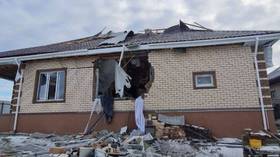Damaged submarine causes Baikal delays
Pioneering work at the bottom of the world’s deepest freshwater lake will resume on August 2. The Russian expedition exploring Lake Baikal in Siberia was suspended due to the collision of a Mir-2 submersible with an oper
“Our main goal is to explore its natural wonders. Baikal is home to more than 1,700 species of plants and animals, two thirds of which cannot be found anywhere else in the world,” says Robert Nigmatullin from Russian Academy of Science.
And with the world facing ever-growing fresh water shortages, the demand for the lake's most-abundant resource is likely to grow.
“That’s why this research is important not only for our country, but also for the whole world,” said Mikhail Flint from Russian Academy of Science.
As water becomes an increasingly more profitable commodity, scientists say it's important to ensure that the lake's waters stay free of pollution.
One of the aims of the expedition is to see how current laws can be improved to make sure Russia's natural treasure has the right legislation to protect it. The State Duma along with local officials and environmentalists overcame their fear of diving to a depth of roughly 1,600 metres to see the lakebed first-hand.
The two Mir submersibles were previously used for record-breaking dives, when they reached the North Pole's sea bed last year. But the salt in the sea is more buoyant than the fresh water which is found in Lake Baikal, which meant the subs had to be modified to improve their flotation.












